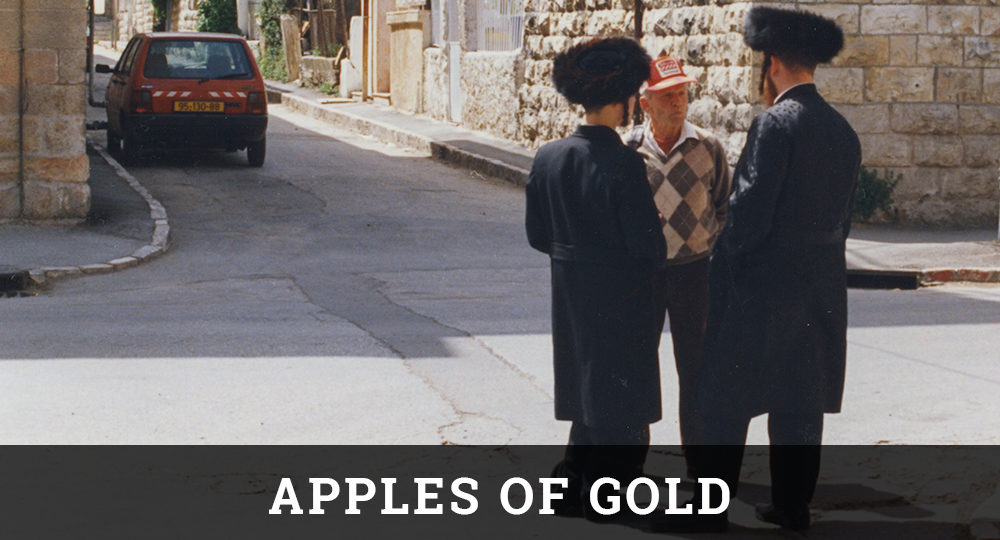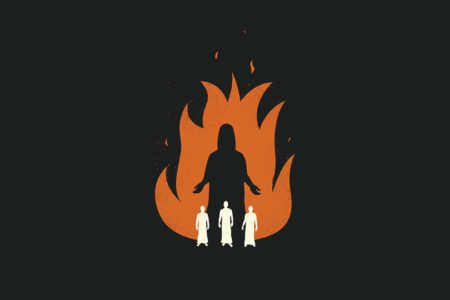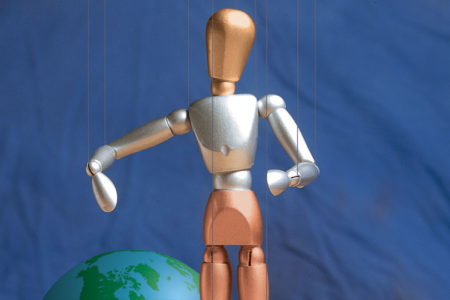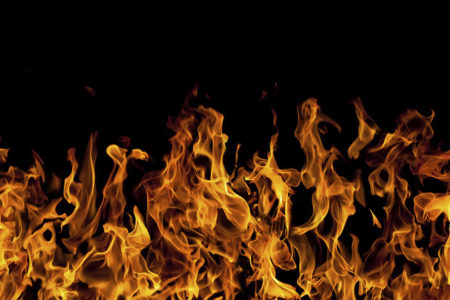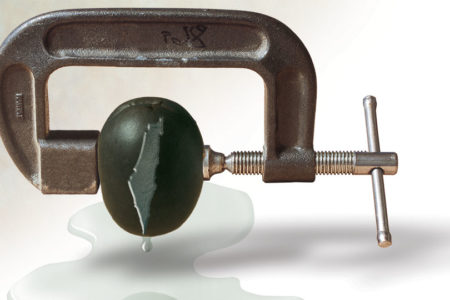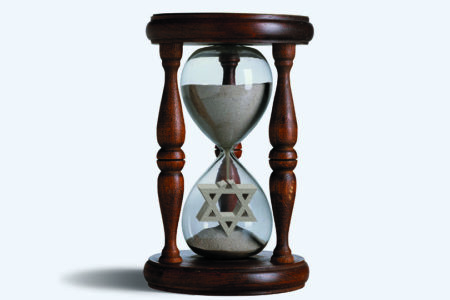Zvi Feb/Mar 2000
Every day we see the Orthodox distributing leaflets on the street. They are free to do this, not like us. We must have eyes in the back of our heads to stay out of trouble. I recently received a leaflet that told of a big meeting in a synagogue in my neighborhood. I have been to that synagogue several times and have engaged the rabbis in long discussions. Often other rabbis visit, and they draw large crowds. This leaflet told of a guest rabbi who would talk about redemption and the Messiah. And who is this messiah of his? He is the late, ultra-Orthodox Lubovitch rabbi from Brooklyn, New York— Menachem Mendel Schneerson.
God chose us to be His Chosen People, to be a light to the Gentiles and to tell of His salvation to the ends of the earth. But what do these people do? They put big posters on the streets, with a big picture of Schneerson, and big letters that proclaim him to be the Messiah.
So I wanted to go to this meeting. When I asked my wife to come with me, she answered as Ruth answered Naomi, “where thou goest, I will go” (Ruth 1:16). When we arrived, many people were there. Most of them looked at us as though we had fallen from another planet, because we do not dress or act like the Orthodox. I listened to the rabbi speak for a long time. As it is written in 2 Timothy 2:24, the servant of the Lord must be patient. I learned patience well in the Israeli army, where I worked in the minefields during all Israel’s wars. Without patience, where would I be today? So I let the rabbi finish speaking. By then everyone was almost asleep. Many people were giving thanks that he was through, and they immediately prepared to leave.
Then the rabbi asked if anyone had questions. I was waiting for this, and I stood up. “Please tell me, rabbi,” I said, “in which chapter of the Bible is it written that the Messiah will come from New York? And how did you conclude that Rabbi Schneerson is the Messiah?”
The people who had been so sleepy were suddenly awake and eager to listen. The rabbi was very sure that he would put me down in a minute. “Tell me,” he said, “do you come often to the synagogue? Do you often read the Bible?”
I said, “For me, the Bible is very interesting, and I believe what is written in it. I don’t run to commentaries but receive the Bible as it is written.” Then he asked me if I had read Deuteronomy 19:16-17 and 17:5-6, which talk about the need for witnesses in a dispute. I answered, “Yes.”
“So,” he said, “is it not enough for you?”
“What do you mean?” I asked.
“How can you ask me such a stupid question?” the rabbi replied. “It says that two witnesses are enough, and here fifty great rabbis have signed a paper saying that our Rabbi Schneerson is Messiah. So who are you to say this is not true!”
By now much tension filled the room. I told the rabbi that people might sign a petition to elect a political leader, but not the Messiah! “Who gave you the right to choose the Messiah?” I asked. “If signatures are all you need, you could come tomorrow and claim there is a new god, as the people did who came up from Egypt. They were in the Desert of Sinai, and what did they do? They made for themselves a new god, a golden calf. Their leaders accepted this so-called god. And there were more than two witnesses. But what was their end? Please, rabbi, tell these people now!”
But he said nothing. So I continued. “Many died,” I said, “because they were deaf to the turth of what is written in the Ten Commandments. In Deuteronomy 6, which you read several times every day, it is clearly written, ‘Thou shalt fear the LORD thy God, and serve him . . . Ye shall not go after other gods . . .Ye shall not put the LORD your God to the test’” (v. 13-16).
I told him that he has done all these evil things, he and the rabbis who signed such a paper. Then he became angry and told me I did not have the right to come to the synagogue. So I asked him, “Rabbi, I will ask you, as you have asked me. Have you read Isaiah 56:7?” He stared at me but did not answer. So I read this passage because all the people wanted to know what was written.
Even them will I bring to my holy mountain, and make them joyful in my house of prayer; their burnt offerings and their sacrifices shall be accepted upon mine altar; for mine house shall be called an house of prayer for all peoples.
I read this because he told me never to return to the synagogue. “So Rabbi,” I said, “here in the Bible it is written that ‘mine house shall be called an house of prayer,’ and again you want to make a new law. Whom shall these people believe?” I then read Psalm 118:8-9, where it is written, “It is better to trust in the LORD than to put confidence in man. It is better to trust in the LORD than to put confidence in princes.” I was happy to see that most of the people were not against me. This conversation took two hours, and they wanted me to continue. Of course, the rabbi did not. But I was happy, because I could see that now the people were thinking.
